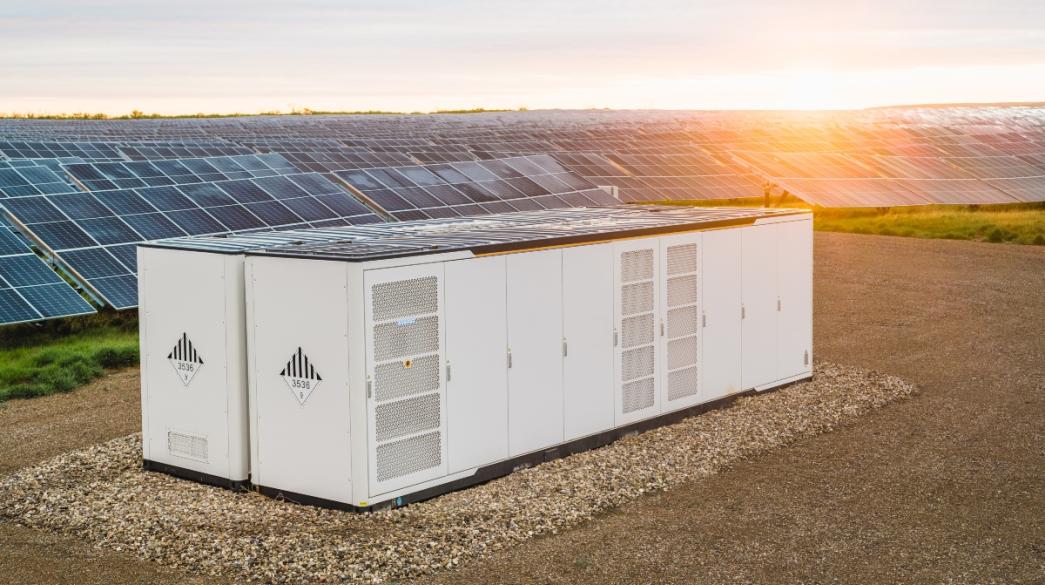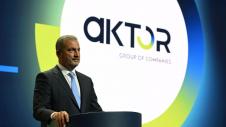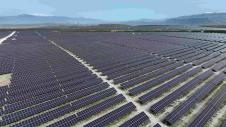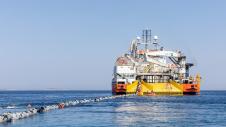Although renewable energy sources (RES) have dominated the country's energy mix in recent years, the cuts in production demonstrate that investments in photovoltaic and wind farms alone are not enough. The ability to store and utilize the generated clean energy is the next major challenge for the sustainability of our energy system.
Since 2022, RES have been the majority in Greece’s energy mix, and in 2024, their share—as well as hydroelectric production—reached 50.5%. However, continuous reductions due to supply-demand imbalances represent the most significant blow to the sector.
According to data from ADMIE, 228 GWh were cut in 2023, and in 2024, reductions reached 900 GWh. In the first five months of 2025 alone, 975 GWh of cuts were recorded, with estimates that they will exceed 1.8–2 TWh — that is, over 10% of total RES production.
Investment interest in RES is showing signs of serious fatigue. Connection requests related to RES projects have not exceeded a total of 880 MW over the last two months.
In this environment of uncertainty, investments in energy systems are gaining more ground, with ADMIE’s connection requests for storage systems increasing significantly. Specifically, for the first seven months of the year, investment plans for batteries totaling 8 GW were submitted, marking a 30% increase from the same period in 2024, which was 5.8 GW. It is worth noting that additional requests of 2.56 GW were added in June-July, with the total volume of storage systems seeking connection terms over the last year and a half reaching approximately 20 GW.
Multiple benefits, significant obstacles
Storing excess quantities during periods of low demand and utilizing them when demand increases will help balance the energy grid and ensure more stable and predictable pricing throughout the day. Up to now, mainly during evening hours when demand is high, electricity generation in Greece relies significantly on natural gas units, which raises the wholesale energy prices.
The Ministry’s Ministerial Decision requiring mandatory pre-approval of loans is a major obstacle for commercial energy storage projects via standalone batteries. Despite investors’ interest in the recent call by the Ministry of Environment and Energy (YPEN) for 4.7 GW of merchant standalone battery projects, banks appear hesitant due to the risks involved in such projects, which have not yet proven their viability in practice.
Furthermore, the requirement for unconditional pre-approval of loans conflicts with banking practices, as banks refuse to lend without conditions.
This has led to a deadlock, with the market asking YPEN for either guidance through a mutually accepted standard contract or for the modification of this specific term so that applications are not rejected. Although it remains uncertain whether these requests will be satisfied, the market seems to be trying to secure positions in anticipation of the Ministry’s next moves.
“No bank wants to get involved in financing that doesn’t have some fixed remuneration,” said Ioannis Kyianidis, Secretary General of POSHEF, to Business Daily.
“Batteries, as outlined by the Ministry, are merchant, meaning they operate in the free market and will be linked to the Energy Exchange. However, this doesn’t provide any stability to the bank. Therefore, it cannot easily finance something that doesn’t have a stable income. Furthermore, they are requesting pre-approval of loans without even providing connection terms, a €100,000 guarantee per project of HEDNO, and a €200,000 guarantee per MW for projects of ADMIE. Basically, they are asking for 100% of the project's cost in guarantees, which is at least a deterrent,” he continues.
He notes that if today’s terms had been in place when photovoltaics investments started, “less than 1% of projects would have been completed.” “There is no interest, and the ministry has been forced to extend the deadline until September 30th and is discussing additional extensions.”
Kyianidis estimates that “all this that the ministry has put out might blow up in the air,” as the target of 4.7 GW is extremely difficult to achieve under current conditions. “If we gather all the banks together, they could probably contribute around 1.5–2 GW,” he explained.
He also pointed out further obstacles created by energy providers (Federation of Energy Aggregators – FOS), which do not easily accept batteries below 10 MW.
The European BESS Market
According to the "European Market Outlook for Battery Storage" report by SolarPower Europe, the European Battery Energy Storage System (BESS) market is expected to grow faster in the coming years, although not at the required levels.
In the most likely scenario for 2025, 29.7 GWh of battery storage capacity are projected to be installed across Europe, representing a 36% annual increase. By 2029, the report forecasts a sixfold increase to nearly 120 GWh, bringing total capacity to 400 GWh (EU-27: 334 GWh).
However, this remains far from the levels needed to meet the flexibility requirements of a renewable energy system. According to the Mission Solar 2040 study, the BESS capacity in the EU-27 needs to reach 780 GWh by 2030 to fully support the energy transition.
Significant steps on the Greek market
Significant steps are already being taken on the Greek market despite the uncertainty about the progression of new investments. Several Greek companies have made notable advances in the storage sector, not only within the country's borders but also internationally, developing know-how that could make Greece self-sufficient and even a knowledge exporter.
“All investors see a huge gap in batteries and perceive an investment opportunity in storing energy during low-demand hours and using it during peak periods,” said Kimon Botsis, General Manager of iXiON ENERGY, a subsidiary of the AVAX Group, to Business Daily.
The group recently submitted a proposal for connecting a 100 MWh energy storage station in Boeotia through its subsidiary, a project they have been planning since 2021. They chose not to participate in the early tenders due to the high costs of batteries at that time, which have since dropped by about 40%. Despite the three-month extension of the relevant tender, they have submitted their application and are in the process of refining their business plan with banks to be ready once connection terms are granted.
The Renewables Department of METLEN offers industrial-scale energy storage solutions (BESS), both in standalone projects and hybrid systems combined with photovoltaic and other renewable projects. In 2024, METLEN experienced a highly dynamic trajectory in the development, construction, and management of energy storage systems, for third parties and own projects, further establishing itself as a leading RES manufacturer. The group has reached a total energy storage capacity of approximately 0.7 GWh in Greece, Italy, the UK, Puerto Rico, Tunisia, and Nigeria.
Within 2024, new projects for third parties with a total capacity of about 1.1 GW were contracted across Greece, Spain, Italy, Chile, New Zealand, and the UK, with a remaining contracted backlog of €463.1 million. An additional €530 million is under final negotiations.
Moreover, on June 24th, 2025, the group signed a Memorandum of Cooperation with Jinko Solar, a Framework Agreement to develop projects with a total capacity of over 3 GWh in Chile and other European markets.
For the Greek Public Power Corporation (ΔΕΗ), batteries are of paramount importance as they will help address the intermittent nature of renewable energy sources. According to its investment plan for 2025–2027, the company aims to operate 600 MW of BESS projects, currently in various stages of implementation across Greece and Southeastern Europe.
These 600 MW will be complemented by pumped-storage projects, considered “natural batteries,” which involve two reservoirs at different altitudes. With investments totaling €740 million in Western Macedonia, these projects will mitigate the variability of RES and contribute to the proper distribution of generated energy throughout the day. Overall, these projects will create over 1,300 jobs during construction and hundreds of ongoing jobs during operation.
It is also worth noting that the ΔΕΗ group recently announced the start of construction for a 25 MW energy storage plant with a capacity of 55 MWh in neighboring Bulgaria.









